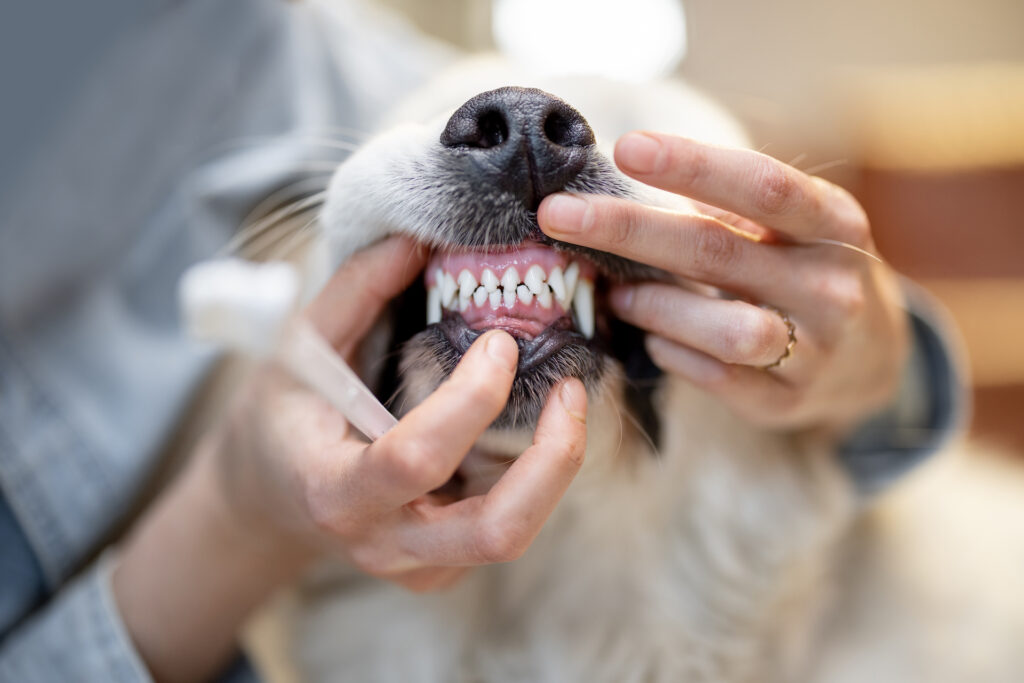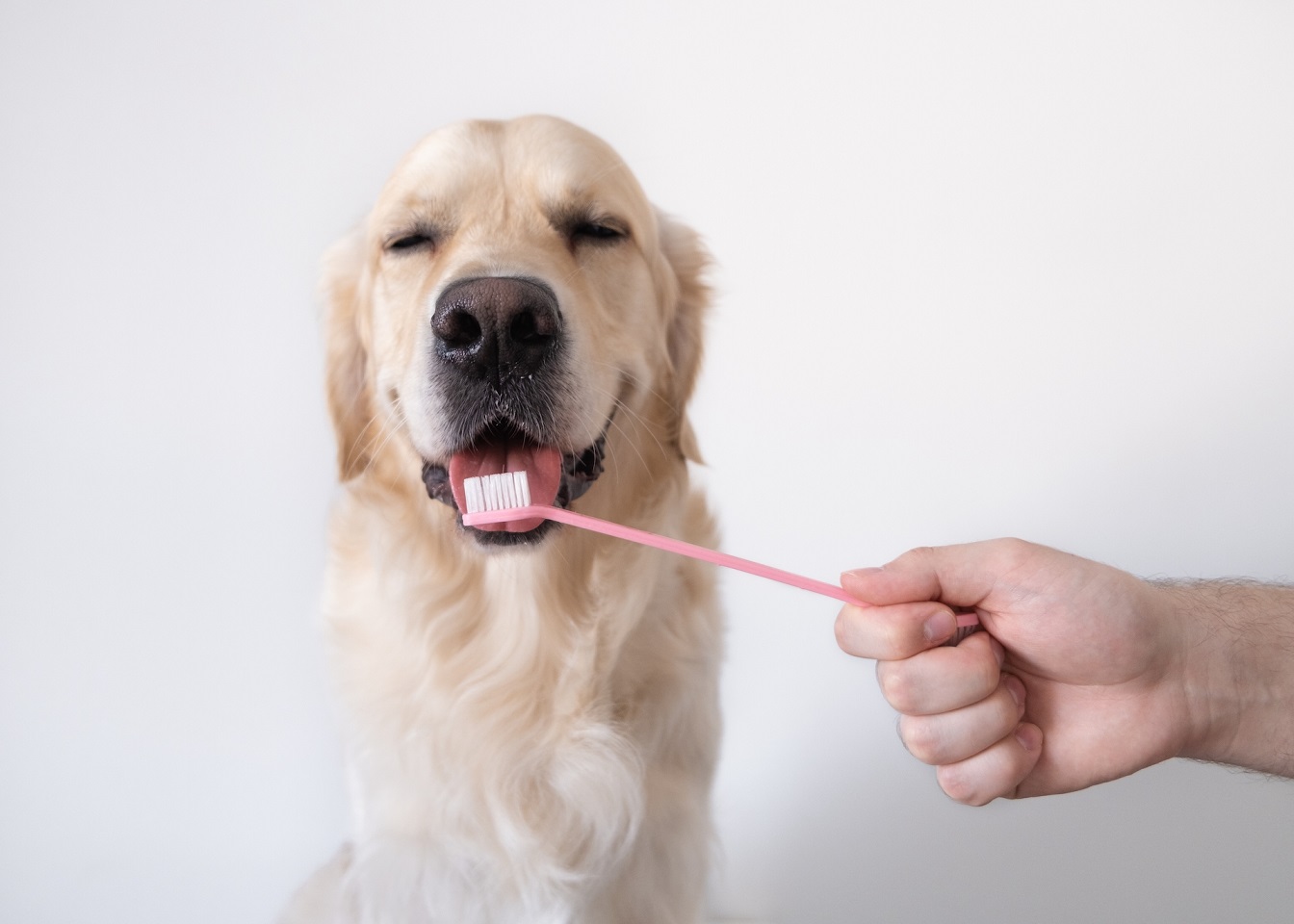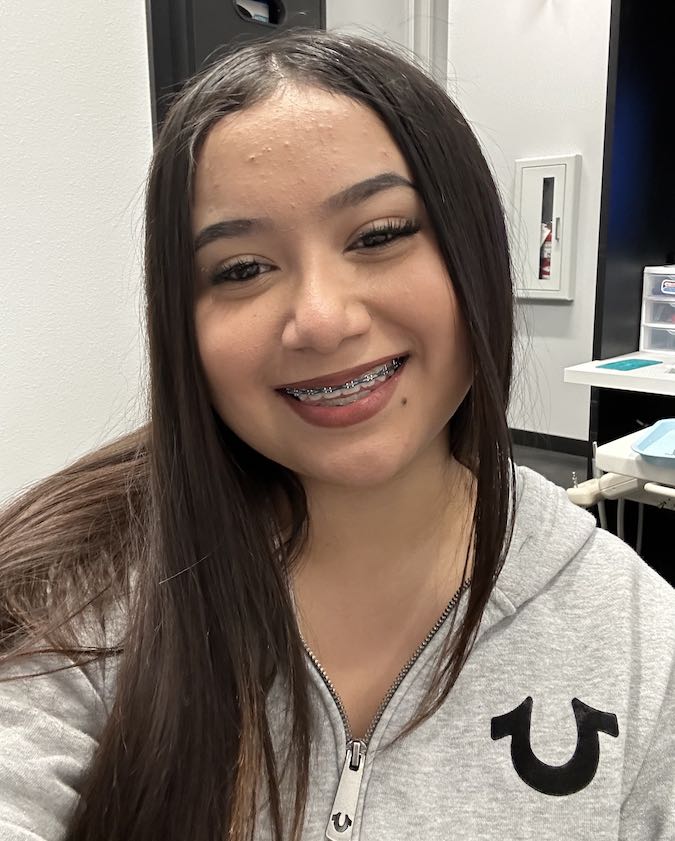Your adorable furry friend brings lots of laughs and joy to your family but they also add extra responsibility. Pet owners are usually familiar with their regular vet visit schedule. However, pet dental care might not be as familiar to fur parents but it is just as important. Just like you need routine dental care, your pets also need help with their oral health. You can support healthy teeth for your pet at home and with a professional dental checkup and cleaning. Find out more about oral hygiene for your pets.
Why Pet Dental Care Matters
As frustrating as it is to find your pup chewing on your favorite heels, those teeth are important to their health. Pet dental care is just as important as their overall health.
The Importance of Good Dental Health for Pets
Your pet needs strong, healthy teeth for eating. Healthy teeth also keep your pet feeling good and living a pain-free life. It's not always easy to tell when your pet is in pain so you might not notice if they're having oral health issues. By practicing good pet dental care, you can avoid any issues and treat things that come up quickly. Keeping up on oral health keeps your pet feeling good and acting normal.
The Risks of Neglecting Pet Dental Care
If you ignore your pet's oral health, you could face major problems including tooth decay and dental disease. Your pet might feel pain or need a tooth extraction to remove decaying teeth. These issues can make it more difficult for your pet to eat and chew on their favorite toys. But it isn't just your pet's teeth and gums that could be affected by poor oral health. Some dental problems can affect other parts of their body including the heart and liver. This can happen when bacteria from oral health issues enter your pet's bloodstream and reach other organs, potentially causing serious health issues.
Skipping regular dental care can also be costly for you. Dental health problems could result in expensive treatments to help fix the issue and relieve your pet's pain. Emergency care for a dental problem is often more expensive than scheduled vet care so you could end up paying a lot more than you would for preventative dental health care.
Keeping Your Pet's Teeth Clean and Healthy
Following regular pet dental care routines can help your pet have healthy teeth.
Tips for At-Home Pet Dental Care
Brushing your pet's teeth is one of the best ways to keep them clean and avoid issues. Regular tooth brushing helps remove plaque before it can harden into tartar and cause oral health problems. You can use human toothbrushes for larger dogs but you might need to use a baby toothbrush for smaller dogs. When you're training or rewarding your pet, use dental treats, which help deal with bad breath and remove plaque from teeth.
Diet can also play a role in your pet's dental health. Crunchy food is typically better for oral hygiene. Wet or canned food can cause more plaque buildup on your pet's teeth.
Toys and chewing objects can also affect the health of your pet's teeth. Some items such as antlers and bones can be too hard and increase the risk of a broken tooth. Even the classic tennis ball can damage the enamel of your dog's teeth. Hard rubber toys designed for dogs are easier on their teeth. If you're unsure about what type of chew toys to offer your dog, check with your vet for recommendations.
Professional Pet Dental Care
Your pet also needs a professional touch to dental care. No matter how much oral care you do at home, your pet will still likely have some plaque buildup on their teeth. Your vet should look at your pet's teeth during the annual checkup to look for any oral health problems.
If your pet has a large plaque or tartar buildup, your vet might recommend a dental cleaning that happens under general anesthesia. The frequency of these cleanings can vary depending on your pet's situation. Your vet might recommend them yearly or your pet might only need cleanings every 2 or 3 years or more. Professional dental care including dental cleanings and dental surgery should be handled by a licensed veterinarian or veterinary dentist.
Common Pet Dental Problems
Your pet is less likely to get a cavity than you are but furry family members can still have oral health issues including periodontal disease. This happens when tartar develops on the teeth. When this happens below the gumline, it can lead to infections and damage to the jawbone. Other potential dental problems include broken teeth, infections, cysts, tumors, and misalignment of the teeth.

Signs of Dental Problems in Pets
Your pet can show several signs of oral health issues. Many of those symptoms are physical things you can see in your pet's mouth. Some symptoms include:
- Damage to the tooth
- Discolored teeth
- Plaque buildup
- Tooth loss
- Mouth bleeding
- Swollen gums
- Bad breath
- Drooling
Other symptoms of pet dental problems are behavioral. Your pet might become irritable or act differently in other ways. When they're eating, they might chew differently or have difficulty eating. They might avoid eating completely if their oral health issues cause them pain.
Preventing Dental Problems in Pets
Taking care of your dog's teeth regularly can help prevent dental problems such as gum disease or tooth discoloration. Home cleaning methods can reduce plaque buildup and tartar, which can prevent decay and periodontal disease. Regular dental cleaning and exams from a vet can also protect your pet's tooth health. The vet can spot early warning signs of a dental issue when it's more treatable with a simple dental procedure such as tooth extractions or deep cleanings.
Keeping Your Pet's Teeth Healthy and Strong
Pet dental care is an important part of pet ownership. Regular pet teeth brushing can help reduce plaque buildup and keep your pet's teeth and gums healthy. Home care and regular dental exam appointments can help prevent bad breath and dental health conditions that can affect your pet's quality of life. Get into a regular pet dental care routine to keep your furry friend's teeth healthy and strong.
We wish we could see your furry friends but you’ll need to schedule your pet's oral care with a vet. We would love to serve you and the rest of your family with your dental care needs though. Book an appointment today at one of our convenient locations in Arizona, Colorado, Texas, or Nevada.
Frequently Asked Questions
How often should I brush my pet's teeth?
Aim to brush your pet's teeth 2 to 3 times per week. You might need to work up to regular tooth brushing if your pet resists. If your pet enjoys having their teeth brushed, you can do it more often.
Can I use human toothpaste on my pet?
You should never use human toothpaste for your pets. They might contain toxic ingredients such as xylitol or ingredients that upset their stomach. Look for pet toothpaste, which is free of potentially dangerous ingredients.
What should I do if my pet resists dental care?
Buying pet toothpaste that's flavored like meat can make pet teeth brushing more appealing. Your pet might need several practice sessions to cooperate with oral care. With more attempts, your dog might be more willing to cooperate. Dog tooth wipes and dental chew toys can support pet dental care for uncooperative pets. Check with your vet for tips that might work with your pet. Prescription dog food that helps reduce dental disease is available and could be an option for an uncooperative pup.
When should I schedule a dental appointment for my pet?
In addition to regular professional pet teeth cleaning appointments, you should schedule a veterinary dentistry appointment if your pet shows symptoms of oral health conditions. You might need emergency care if your pet has a tooth injury or severe infection.

